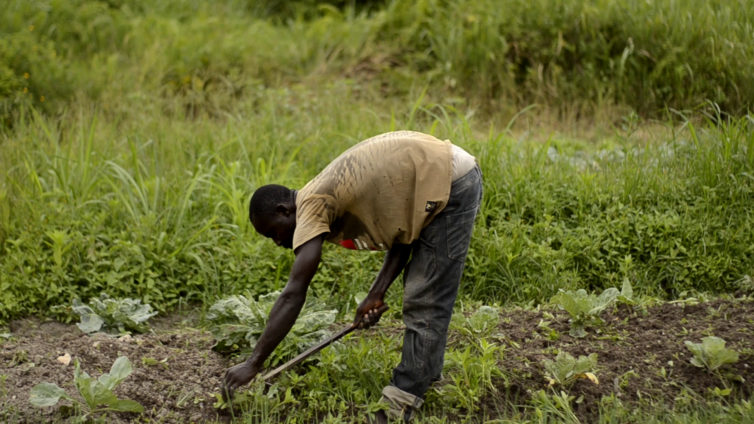
Audio By Carbonatix
The rising cost of agriculture inputs, including fertilizer, is taking a huge toll on crop production and food prices.
In Ghana, high cost of fertilizer can lead to less production.
To mitigate the impact of the high cost of fertilizer on food security and to strengthen food system resilience in Ghana, SOS-GrEEn is promoting the production of organic fertilizer in some regions.

Frank Otu Acheampong spends over 2,000 Ghana cedis buying 6 boxes of fertilizer for his ten acre farm.
The high cost of farm production has affected his farm business financially.
"After SOS-GrEEn trained us on how to produce organic fertiliser with waste, I don't buy organic fertilizers anymore and this has help me to be financially stable," he said.
Currently, all inorganic fertilizers are imported with Nitrogen Phosphorus and Potassium (NPK) taking about 50% of the imports while urea, ammonia and the rest cumulatively take the remaining 50%.
In 2020, Ghana imported about 620,000 metric tonnes of fertilizer to feed the agricultural sector, especially for the planting for food and jobs programme, which had a significant impact on production.
SOS-GrEEn has trained farmers in the Ashanti and Western regions to make organic fertilizer to mitigate the challenges faced by farmers.

According to farmers, including Frank, "opting for organic fertilizer for his farm has improved yields and reduced cost"
Agnes a farmer said, "The training has really helped improve my rice farming. I use to spend the little I have on inorganic fertiliser but after learning how to produce fertilizer locally, I spend less on my own 3 acre of rice."
The SOS-GrEEn Project under the EU and UN Capital Development Fund (UNCDF) is effectively managing community waste and utilizing organic manure as fertilizer to reduce the presence of POPs (Persistent Organic Pollutants) in the environment while securing higher crop yields.

"The project has the goal of reducing the use of inorganic manure on farms and boost harvest. As part of our green agenda the skills we've equip the beneficiaries with to produce organic fertilizers will conserve the earth,"SOS-GrEEn Project Coordinator, Shaibu Fuseini revealed.
Latest Stories
-
Dad unlawfully killed daughter in Texas shooting, coroner rules
35 minutes -
Anas wins 7 – 0 as SC unanimously rejects attempts to reverse judgment in his favour
46 minutes -
The cocoa conundrum: Why Ghana’s farmers are poor despite making the world’s best chocolate
2 hours -
Powerful cyclone kills at least 31 as it tears through Madagascar port
2 hours -
GoldBod summons 6 gold service providers over compliance exercise
3 hours -
Power disruption expected in parts of Accra West as ECG conducts maintenance
3 hours -
Police investigate alleged arson attack at Alpha Hour Church
3 hours -
Heavy Sunday downpour wrecks Denyaseman SHS, schools, communities in Bekwai Municipality
3 hours -
Ridge Hospital is in critical condition – GMTF Boss appeals to corporate Ghana
4 hours -
Introduce long term measures to tackle challenges in cocoa sector – IERPP to government
4 hours -
Agricultural Economist proposes blended financing model to support cocoa sector
4 hours -
NPP MP warns against reducing producer price as government rolls out cocoa reforms
5 hours -
Tano North MP urges halt to grain exports over food glut
5 hours -
Farmers hopeful as government moves to expedite cocoa payments
5 hours -
Tensions at Agbogbloshie market women oppose AMA drain cleaning exercise, items confiscated
5 hours

